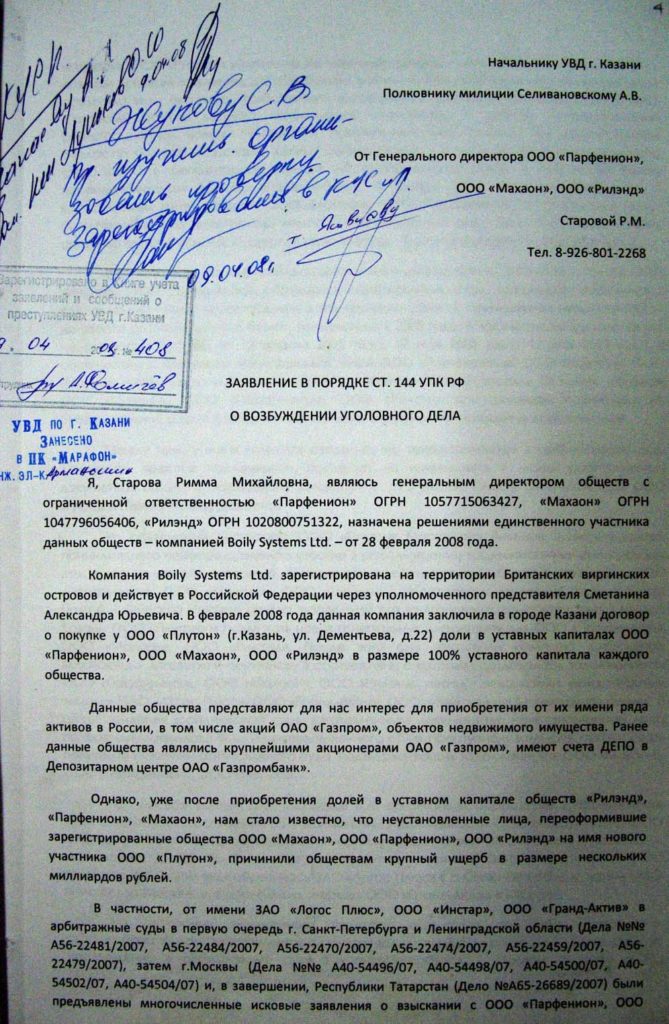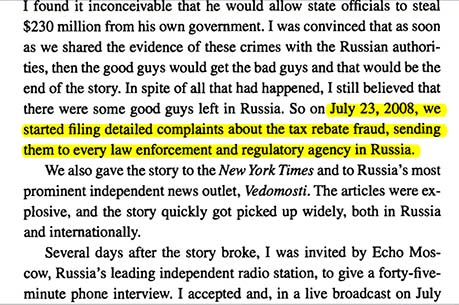 Jan 9, 2018 – Another fake news Russiagate story, this by NYTimes.
Jan 9, 2018 – Another fake news Russiagate story, this by NYTimes.
About Glenn Simpson, former Wall Street Journal reporter, whose FusionGPS was hired in turn by the Clinton and Trump campaigns to find dirt on the other. Read the story by Matt Flegenheimer for details, but note these lies in the NYT account.
Let‘s start with “Rinat Akhmetshin, a Russian-American lobbyist, and Natalia V. Veselnitskaya, a lawyer known as a formidable Moscow insider.”
Known as? Evidence, please! The passive tense is always a clue that you cannot source this. That description about Veselnitskaya has been debunked. She is just a Moscow lawyer who represented the family that owned Prevezon, the real estate company targeted by Browder.
NYT: “The two have worked to turn back the Magnitsky Act, a 2012 American law detested by President Vladimir V. Putin of Russia, that punishes Russian human rights violators. And together with Mr. Simpson, the trio worked on behalf of a Russian-owned company accused by the United States government of laundering some of the funds stolen in a fraud uncovered by Sergei L. Magnitsky, after whom the act was named.”
Untrue: The act does not target “human rights violators,” as the crimes of the Magnitsky Hit List are not cited much less proved. The act targets Browder‘s Hit List, which was organized to build a political wall against the Russians going after him for multi-million-dollar tax evasion. No charges, no evidence, no trial. Rule of law?
Note how lawyer Andrey Pavlov, ignored for five years after the Act was passed, was just added to the list two months to the day after he was quoted by me discrediting Browder.
The Times supplies no evidence that the fraud was uncovered by Magnitsky.
Magnitsky talked about the theft of the Hermitage companies for the first time in an interrogation by tax investigators in June 2008.
Magnitsky said: On 3 April 2008, Kommersant published an article which, referring to the law-enforcement authorities, reported that Parphenion, Limited Liability Company, Realand, Limited Liability Company, and Machaon, Limited Liability Company, had allegedly used «tax evasion schemes » and criminal proceedings were launched to prosecute those at fault. Kommersant April 3, 2008 and April 4, 2008 .

Rimma Starova was a hired “name” fronting as a director of the company to which the shells had been transferred. She saw the Kommersant articles. By then the re-registered companies had participated in the $230 million tax refund fraud. Investigators might have discovered the scam. She didn‘t want to take a fall and went to the police. Her complaint April 9th detailed the fraudulent theft of three Hermitage companies.
Investigators would normally have followed up to find out what the fraudsters had done with the companies. And discovered their tax refund fraud. But we don’t know.
Browder in his book Red Notice says says that his group first filed official complaints about the tax rebate fraud on July 23, 2008.

Magnitsky’s testimony was released after Magnitsky’s death, available for inquiring journalists but not touted by Browder. And routinely ignored by journalists who, far from being inquiring, were Browder’s stenographers. Or can you cite anyone who quoted Magnitsky’s testimony?
There’s nothing in the Times story to explain that Veselnitskaya went after the Magnitsky List because Browder, with the help of the Justice Department, targeted her client Prevezon, the Russian real estate company accused of receiving $1.9 million of $230 million stolen from the Russian Treasury. That‘s right, less than 1 percent. DOJ never proved it. And it seems with all their claimed bank transfer documents linked from the initial Russian Treasury payout, DOJ could never find who got anything else. The DOJ chief investigator testified that their evidence came from Browder! Hyman deposition.
See video clip of Hyman’s deposition taken by lawyer John Moscow.
NYT, have you asked DOJ where the remaining $228 million went? Were the recipients not politically interesting? Not in Browder‘s cross-hairs?
Browder‘s fake Magnitsky story was the back story to the DOJ Prevezon prosecution. The case was settled because it was costing the company more than the settlement. And the DOJ apparently didn‘t want to risk a trial.
Here‘s the one sentence in the Times story that surprised me: “We collect facts,” Fusion said in a statement, describing itself as a research company. “Occasionally, the facts turn out to be helpful to people we deplore, like Vladimir Putin, or undermine people for whom we have considerable sympathy, like William Browder.”
Fusion claiming sympathy for Browder is patently untrue. Working for BakerHostetler, the law firm hired by Prevezon to fight the DOJ charges, Fusion knew that Browder had used offshore shell companies to build a corporate structure to cheat on Russian taxes.
Maybe in an era of neo-McCarthyism, Fusion felt it had to say what it said. Fusion sympathy for Browder? No.
Just out that Senator Feinstein has released Simpson‘s testimony to the Senate Judiciary Committee. So more later. It is a lot about Browder!


Pingback: Columbia Law prof gets caught in a propaganda trap – The Komisar Scoop
Pingback: 20 fake US media articles on the Browder Magnitsky hoax and one honest reporter from Cyprus – The Komisar Scoop